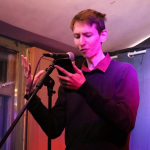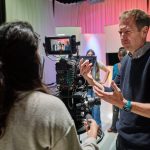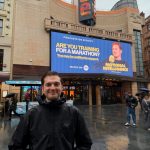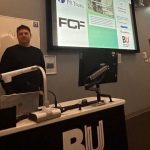 Produced by Guest blogger
Produced by Guest blogger
This is a guest blog written by EELF Committee Support Team Leader Joseph McMullen, a PhD student and part-time lecturer at Bournemouth University. Joe also studied his Bachelors of Law – LLB at BU.
The European Environmental Law Conference 2021 
Building links between law, science, technology, economy, and policy are key to addressing and resolving environmental issues.
From the 8- 10 September 2021, Bournemouth University hosted the European Environmental Law Forum (EELF) conference, which, due to the issues posed by the COVID-19 pandemic, was developed and managed virtually.
The organisation of this event fell into the hands of Senior Lecturer Tilak Ginige and his unrelenting enthusiasm was contagious. Tilak’s passion for environmental law is undeniable, but his primary goal was to create new interdisciplinary links between law, science, technology, economy, and policy to ensure that environmental issues are addressed and resolved as effectively as possible. Bringing so many disciplines together under a common theme is rare and the typical lack of interdisciplinary collaboration has hindered progress in a lot of areas of environmental law. However, prior to EELF 2021, there haven’t been many opportunities for such collaboration. With this in mind, we assembled a team of academics, post-graduates, and students from a range of specialties to develop the conference.
Organising this event had its challenges, but every member of the team supported each other and by the time September arrived, we’d become a well-oiled machine that looked towards the start of the conference with excitement and confidence. 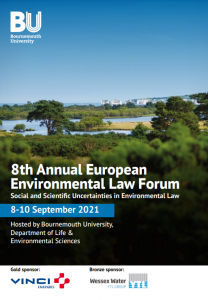
We hosted over 150 attendees, over 90 contributors, and 23 keynote speakers on a virtual platform and despite the odd technical glitch the feedback was overwhelmingly positive. Creating a forum for all of us to come together and listen to discussions and talks delivered by the experts was awe inspiring and motivational. Additionally, the conference met our aim of trying to bring experts from varying fields together; in one of the parallel sessions I hosted, a group of academics mistakenly joined a discussion which they hadn’t originally intended to join. However, they were intrigued by the content of a talk on circular economy and, following conversation with the presenters, ultimately teamed up to form a new multidisciplinary research project. What started out as a predominantly economic talk has led to the formation of a project which will investigate the role of the public in the circular economy within the ambit of plastic legislation and policy. The new research group thanked us for bringing them together, and we’ve since heard that other groups are forming too!
Speaking after the conference, Tilak said the team ‘was the heart and soul of the project’ and created an event filled with passion, commitment, professionalism, and respect.
My personal highlight is that our team are now firm friends who have been by each other’s sides for over a year, and we’ve continued in exactly the same way since the conference ended.
I’ve had an incredible time with some truly amazing people, and I can’t thank them enough for the experience.
 Could 2021 be your year to be more sustainable?
Could 2021 be your year to be more sustainable? From UG Tourism to PG Marketing
From UG Tourism to PG Marketing One minute silence that took my breath away – Story of a Nursing student
One minute silence that took my breath away – Story of a Nursing student Diwali 2020: festival of lights…from home?
Diwali 2020: festival of lights…from home?
